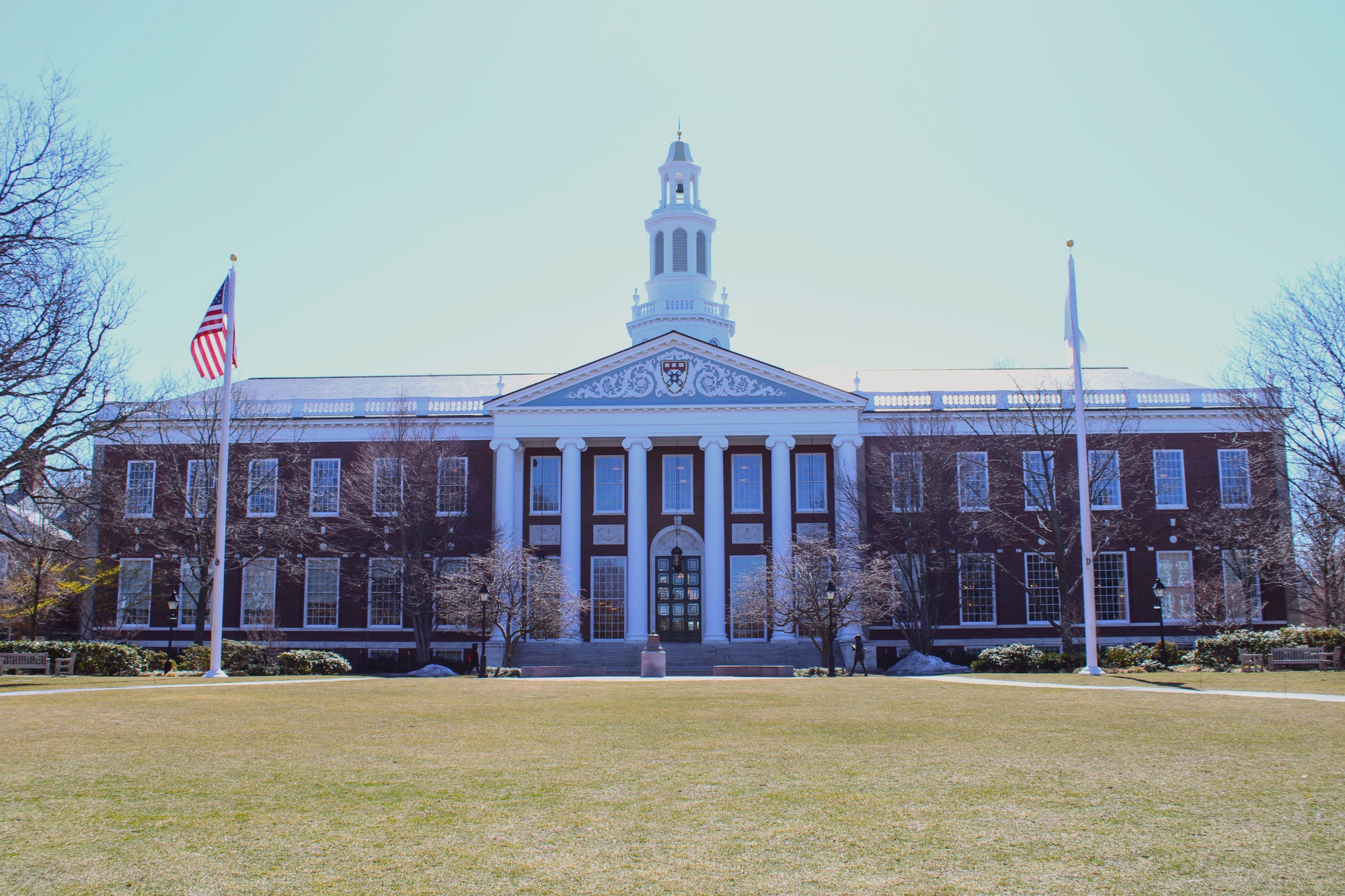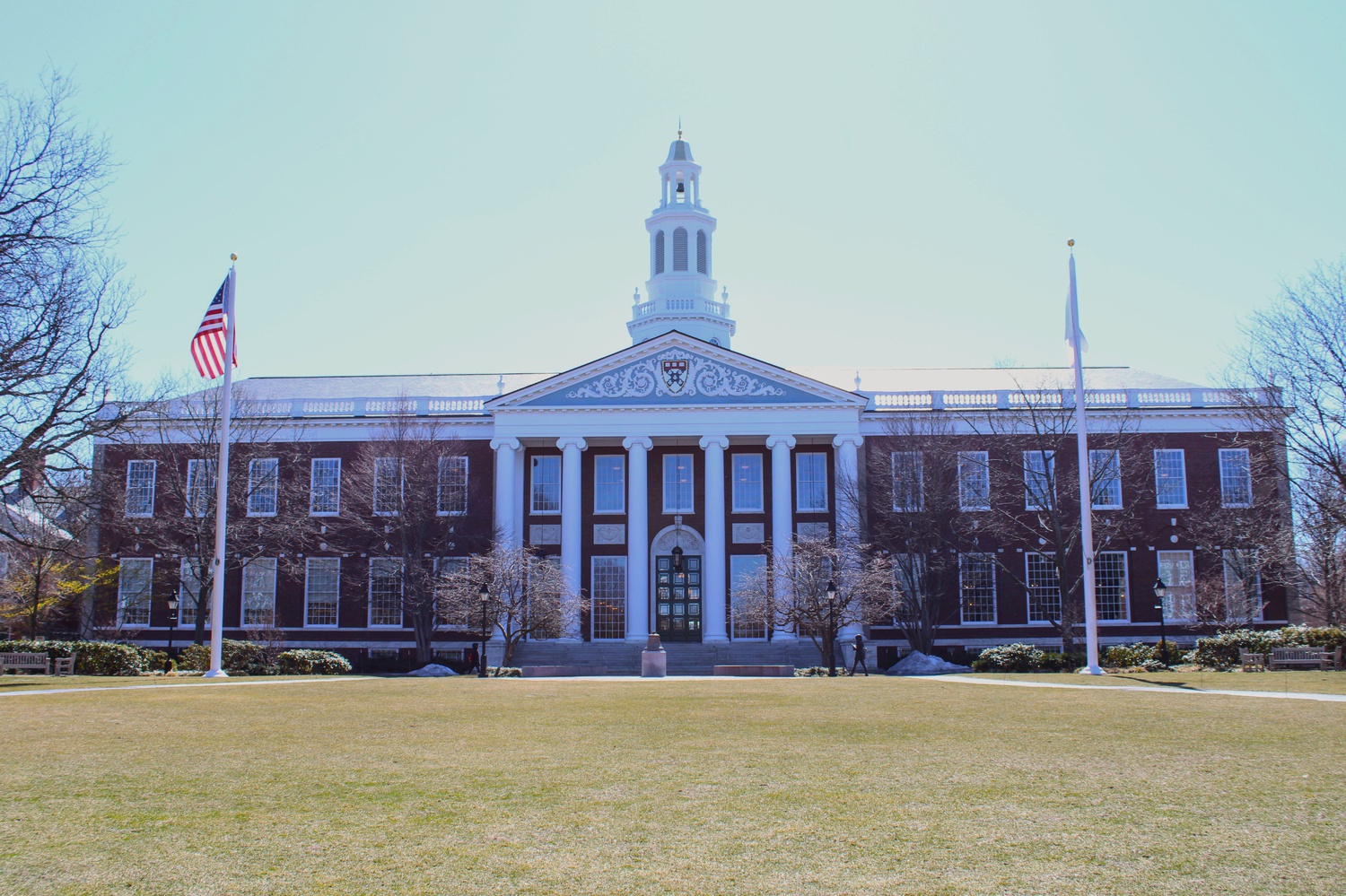
News
Cambridge Residents Slam Council Proposal to Delay Bike Lane Construction

News
‘Gender-Affirming Slay Fest’: Harvard College QSA Hosts Annual Queer Prom

News
‘Not Being Nerds’: Harvard Students Dance to Tinashe at Yardfest

News
Wrongful Death Trial Against CAMHS Employee Over 2015 Student Suicide To Begin Tuesday

News
Cornel West, Harvard Affiliates Call for University to Divest from ‘Israeli Apartheid’ at Rally
WBUR Hosts Climate Change Panel With Harvard Business School


Boston public radio station WBUR hosted a panel discussion about strategies for combating climate change Monday evening at CitySpace in collaboration with Harvard Business School and the Boston University School of Business.
The panel — entitled “Climate Politics and Business” — marked the third event in a five-part series called “Stepping Up: Business in the Era of Climate Change.” The event featured business executives who spoke about economic and policy reforms to reduce carbon emissions, drawing a crowd of roughly 100 people on Earth Day.
The panelists discussed several approaches to tackling climate change through government action. William C. Eacho, the co-founder of a lobbying organization called Partnership for Responsible Growth, said he favored “free market solutions” such as a carbon tax over a “regulatory approach.”
“You’re going to have a hard time agreeing at a federal level on a bipartisan answer that approaches it from the regulatory approach,” Eacho said. “You have a far better chance at a bipartisan solution if you’re talking about market solutions.”
Mindy S. Lubber — the CEO and president of Ceres, a non-profit that advises companies on adopting sustainable practices — said fiscal policy needs to incorporate incentives for businesses to reduce their negative environmental impacts.
Lubber said leaders of companies must also understand “that [they are] stewards of the future as well as stewards of [their] quarterly balance sheet.”
Auden Schendler, the vice president of sustainability at Aspen Skiing Company, said public support for combating climate change, however, is insufficient.
“We really do need a revolution,” Schendler said. “Ultimately, this is a problem of democracy. It’s a failure of democracy in America where people feel disempowered. They feel it doesn’t matter. They are deeply cynical. They feel let down.”
Lubber agreed that motivating people to pay attention to the environment is difficult, characterizing climate change as a “psychological challenge.” She said finding solutions to stem climate change is “scientifically and technologically possible.”
“Will of humanity is really what’s on the line,” Lubber added.
Attendee Dianne M. Brown said the event made her think about the lack of public engagement surrounding climate change.
“We need to figure out how to get voters and the public engaged in these issues across the country because if we do, the solution will come far more quickly,” she said.
The WBUR series on the intersection of climate change and business solutions is the brainchild of Business School professor Michael W. Toffel, who said he pitched the idea to the station in June. Toffel said the series aims to “shine a light on” policy solutions that business can support to stem harmful environmental impacts.
“We want to amplify in the Boston community how firms are being impacted by climate change and how firms are affecting climate change,” he said.
WBUR’s Director of Community Engagement Amy E. Macdonald said one of the station’s goals is to attract more than just business-minded people to this discussion.
“It’s not only people in the business industry, but I think it’s more just your regular lay person in Boston, who cares about these issues,” Macdonald said.
There are two events remaining in the series: “The Road Map of the Future: Transportation” and “Energy Transition.” The events will take place at CitySpace on May 7 and June 4, respectively.
—Staff writer Ema R. Schumer can be reached at ema.schumer@thecrimson.com. Follow her on Twitter at @emaschumer.
Want to keep up with breaking news? Subscribe to our email newsletter.
